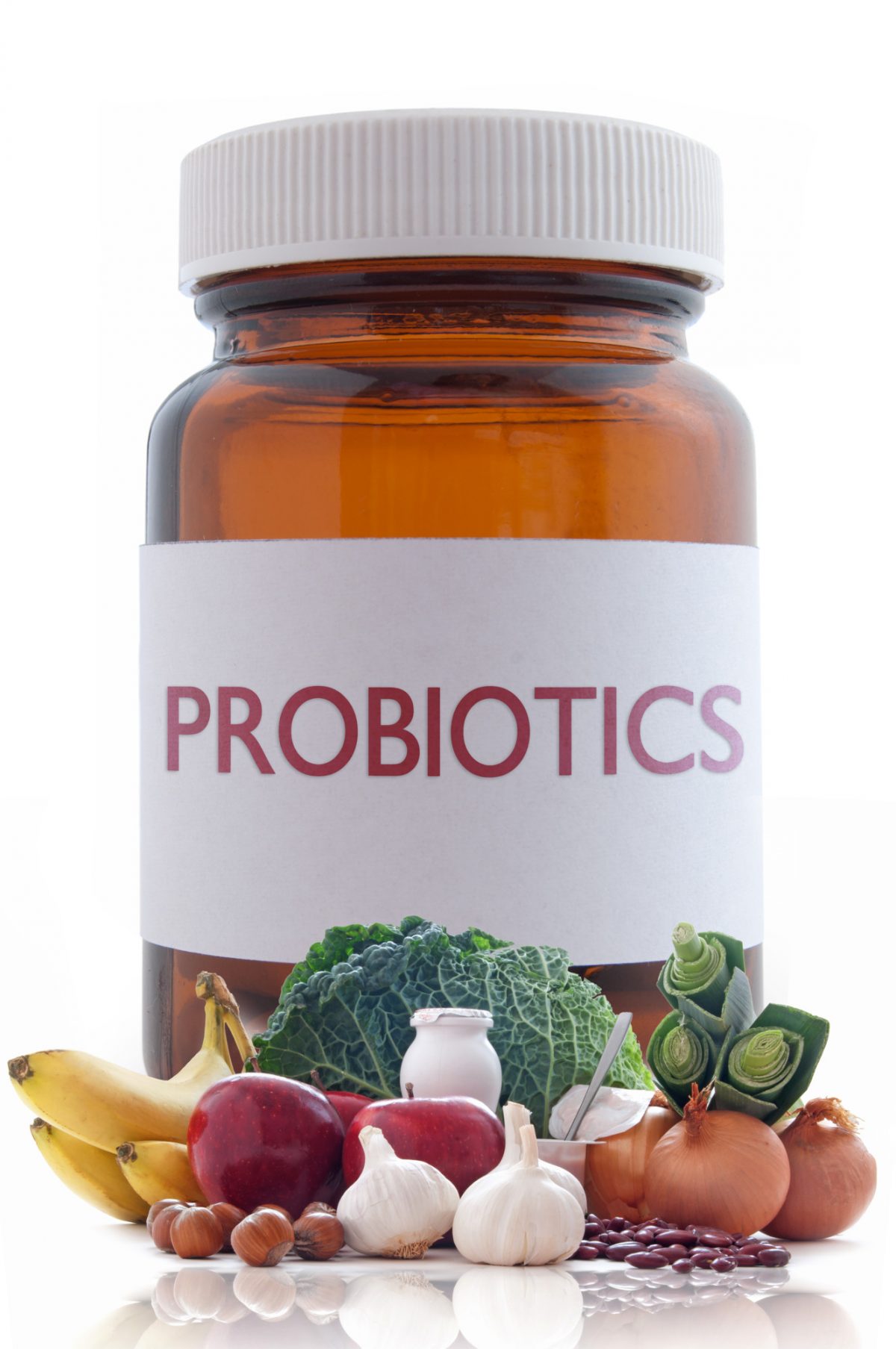If you’re a person in good health, your gut houses more than 500 species of bacteria! The bacteria differ from person to person based on diet, age, and state of health.
Not all bacteria are bad, and this is true for the bacteria inside your body too. Your body needs healthy types of bacteria to function properly. These healthy bacteria are probiotics.
Probiotics are helpful bacteria that support a healthy digestive system. How do you get probiotics into your system? They come from the food you eat and certain supplements.
Keep reading for a helpful primer on probiotics.
A Healthy Digestive System
We often take our digestive systems for granted until something goes wrong. Have you ever suffered from “Montezuma’s Revenge” when traveling?
You may not know the term, but chances are you know the problem! “Traveler’s Diarrhea” is another name for it. Life is no fun when your digestive system is out of whack.
Emergency visits to the bathroom, bloating, and pain are all common symptoms of an imbalance of good and bad bacteria in your gut. A healthy gut is full of good bacteria.
Probiotics: The Helpful Bacteria
Probiotics are a recent discovery, in scientific terms. Elie Metchnikoff first discovered a possible link in 1905. He noted the connection between lactobacilli used in yogurt in Bulgaria and the increased longevity of the population.
Metchnikoff’s discovery set the stage for later probiotic research. It wasn’t until 1973 that probiotic research took off. Research of probiotics is ongoing, but it’s now understood that we need them for a healthy gut.
Types of Probiotics
There are many types of bacteria, but the two common groups are:
- Bifidobacterium
- Lactobacillus
If you eat yogurt, chances are you’ve heard of lactobacillus. This is the live active strain of bacteria in yogurt.
Bifidobacterium is in some dairy products and helps reduce symptoms of irritable bowel syndrome (IBS). It’s estimated that around 35 million Americans have IBS.
What do these helpful bacteria do?
Helps with Inflammatory Bowel Disease
Inflammatory bowel disease (IBD) describes many disorders of the bowel. These disorders involve ongoing inflammation in the digestive tract.
Crohn’s Disease is one such disease. Colitis is another. The two diseases are often confused because some of the symptoms are the same.
There is no cure for these diseases, but probiotics help many people with the symptoms. Probiotics extend the time between episodes or help prevent relapse.
Boost the Immune System
Probiotics boost immune system function. They strengthen the intestines against bad bacteria, which helps the immune system.
It’s thought that probiotics boost natural killer cells, T lymphocytes, and other immune-producing cells.
Treatment for Diarrhea
Remember traveler’s diarrhea? Next time you’re traveling, take some probiotics with you. Taking probiotics reduces your chances of traveler’s diarrhea by about 8%.
Have you ever had diarrhea after taking antibiotics? Diarrhea is a common side effect of these life-saving drugs.
If you have a bacterial infection making you sick, antibiotics kill the bad bacteria. Antibiotics can’t differentiate between bad and good bacteria, so good bacteria dies too.
When the good bacteria die, your system becomes imbalanced. Diarrhea is often the result. Taking probiotics adds helpful bacteria back to your gut, which in turn helps with diarrhea.
The most helpful strains of bacteria in the treatment of diarrhea are Lactobacillus rhamnosus and Lactobacillus casei.
Reduces Constipation
Because probiotics balance the gut, they also help with constipation. There is some association with constipation and increased risk for colorectal cancer.
If you suffer from constipation, eat more fiber and drink lots of water. Consider taking a probiotic as well.
The Weight-Loss Connection
The connection between probiotics and weight loss needs further research. It appears, though, that Lactobacillus rhamnosus aids weight loss. Preliminary studies show a loss of belly fat with small doses of Lactobacillus gasseri.
If you’re working on weight reduction, stick with these two bacterial strains.
Reduce Allergic Reactions
Probiotics reduce inflammation, thereby aiding in the reduction of allergic reactions. Giving children probiotics reduces the development of some diseases, including asthma and eczema.
Inflammatory allergic reactions to food were also reduced. Probiotic research is still new and more studies are needed, but the initial studies are promising.
Improved Mental Health
Your gut is a mini-brain in your body. There is a connection between your gut, your brain, and your central nervous system.
Healthy gut bacteria are crucial to this connection. Dopamine is a “feel good” chemical in your body. Healthy gut bacteria produce more dopamine than unhealthy bacteria.
If your gut is full of unhealthy bacteria, it hurts your mood. A diet full of processed foods and sugar leads to unhealthy gut bacteria.
Eat lots of fruits and vegetables and supplement your diet with probiotics for a healthier gut and a better mood.
A Healthy Heart
There is a possible connection between bad cholesterol (LDLs) and probiotics. Some strains of bacteria lower bad cholesterol because they break down bile in the gut.
When bile is reabsorbed in the gut, it enters the bloodstream as cholesterol. By breaking down the bile, it prevents this reabsorption.
Eating Probiotics
Probiotics are in fermented foods such as sauerkraut and kimchi. The yogurt drink kefir and yogurt also contain probiotics.
If you eat yogurt, look for brands with live, active cultures and low sugar content.
Probiotic Supplements
There are many types of probiotic supplements available. They come in capsules, powders, and tablets.
Look for formulas containing 1 billion to 100 billion colony forming units (CFU) or live organisms per day.
Probiotics for Better Health
Everyone’s bodies are full of bacteria. We need a certain amount of helpful bacteria to keep our bodies functioning well.
Do you suffer from IBS, constipation, or chronic diarrhea? Try eating more probiotics or taking some supplements.
These microorganisms help balance your gut for a healthier gut-brain connection and may even help your mood!
Are you looking for more information? Check out studies related to Chrohn’s disease on our site today!

No Comments